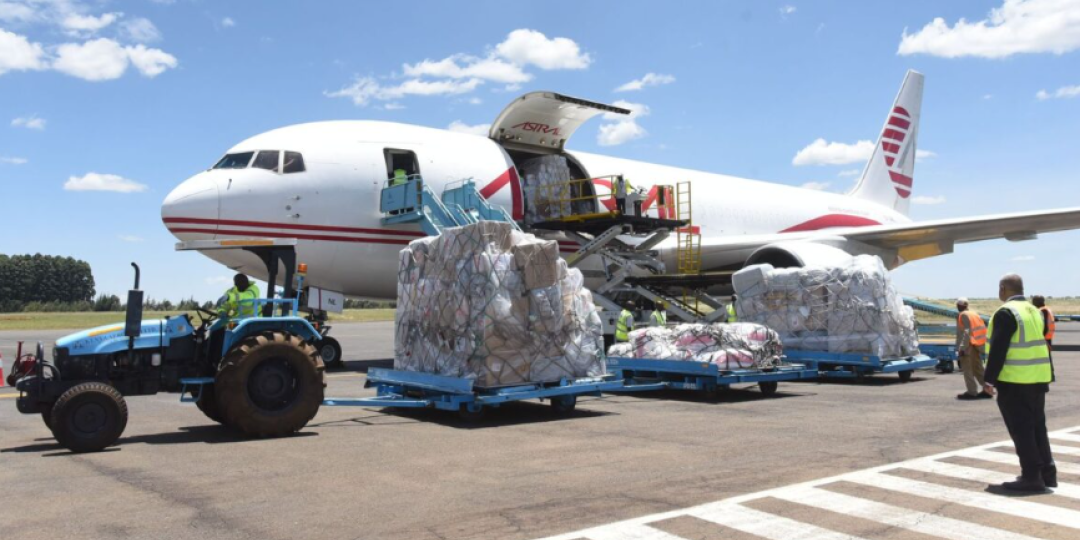African air cargo carriers are experiencing robust growth, underpinned by strong demand for perishable exports and the expansion of air freight networks across the continent.
Figures from the International Air Transport Association (Iata) reveal that African airlines recorded an 8.5% year-on-year increase in cargo volumes in 2024, while available capacity rose by 13.6%. A significant portion of this growth has been attributed to the rising global appetite for African perishables – including fruit, vegetables, meat, and cut flowers.
Kenya remains a regional powerhouse, standing as Africa’s leading vegetable exporter and ranking third globally in flower exports. Its flag carrier, Kenya Airways Cargo (KQ Cargo), operates a CEIV Pharma-certified facility at Nairobi’s Jomo Kenyatta International Airport and is investing in further upgrades to improve its handling of ambient, chilled, and frozen goods.
“We’re developing dedicated handling lanes for meat, fresh produce, and flowers,” said Peter Musola, head of cargo commercial at KQ Cargo.
Kenyan exporters continue to benefit from preferential trade agreements with the United Arab Emirates, the United Kingdom, and the European Union, facilitating greater market access. However, Astral Aviation CEO Sanjeev Gadhia has cautioned against overreliance on these traditional markets.
“While outbound volumes of perishables to Europe and the Middle East are performing well, inbound cargo remains weak due to ongoing economic pressures,” Gadhia said, adding that greater emphasis should be placed on building trade with Asian markets.
Looking ahead, the African Continental Free Trade Area and the Single African Air Transport Market are anticipated to significantly ease cross-border trade within Africa, streamlining logistics for perishable goods.
Nonetheless, infrastructure constraints and limited capacity continue to pose challenges. Disruptions such as the Covid-19 pandemic and the recent Red Sea crisis have underscored the fragility of the cargo ecosystem, with foreign freighter withdrawals causing widespread impact.
“During Covid, some farmers were forced to destroy flowers when cargo flights abruptly ceased,” Musola recalled.
Astral Aviation is now looking eastward, targeting Middle Eastern and Asian markets – particularly underutilised Chinese airports – to capitalise on growing e-commerce demand. The airline has also forged new interline agreements with Emirates SkyCargo and Turkish Cargo to extend its global reach.
Air Cargo News reports that with Africa’s perishable export market continuing to expand, regional carriers are prioritising reliable capacity, exploring untapped markets, and building strategic alliances to ensure fresh African produce reaches international shelves swiftly and sustainably.













